Search Results
Showing results 21 to 40 of 46
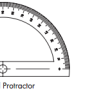
Pocket Protractor
Source Institutions
In this activity, learners create angle-measuring devices--protractors--out of paper. Learners follow a series of steps to fold a square sheet of paper into a triangular Pocket Protractor.
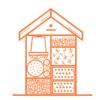
Bug Hotel
Source Institutions
In this activity, learners will create a home for animal friends in their backyard using recycled materials. Some material suggestions include: pine straw and twigs.
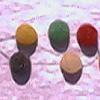
Gumdrop Chains and Shrinky Necklaces
Source Institutions
In this activity, learners thread gumdrops together to make a model of a polymer.
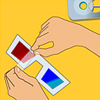
Seeing 3D
Source Institutions
Create 3D glasses and use them to explore color, light and optics. Fool your brain into 'seeing' three dimensions on a flat surface!
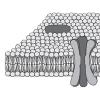
Build-A-Membrane
Source Institutions
In this activity, learners cut, fold, and paste paper representing biomolecules to create a three-dimensional cell membrane with embedded proteins.
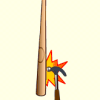
Finding the Sweet Spot
Source Institutions
In this activity, learners will discover how to find the "sweet spots" on a baseball bat. Whenever an object is struck, it vibrates in response.
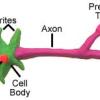
The Model Neuron
Source Institutions
In this activity, learners create a model of a neuron by using colored clay or play dough. Learners use diagrams to build the model and then label the parts on a piece of paper.
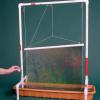
Soap-Film Painting
Source Institutions
Make a big canvas of iridescent color with pvc pipe! In this Exploratorium Science Snack, you'll need to cut and assemble some PVC pipe, but the pay-off, the soap-bubble canvas, is big.
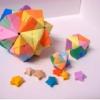
Paperfolding Polyhedrons
Source Institutions
In this activity (on pages 55-66 of PDF), learners fold paper into origami shapes and then combine several identical shapes into a three-dimensional structure.
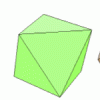
Solidly Platonic
Source Institutions
In this activity, learners follow simple directions to explore and create platonic solids.
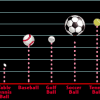
Bouncing Balls
Source Institutions
When baseball was in its infancy, the ball had plenty of bounce. Today's baseball may not seem to have bounce to it at all; if you drop a ball on the field it won't bounce back.
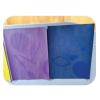
DIY Sunprints
Source Institutions
In this activity, learners will see how UV light affects colors over time by making their own sunprint on construction paper.
Musical Coathanger
Source Institutions
In this activity, learners turn an ordinary metal coat-hanger into a (very quiet) musical instrument.
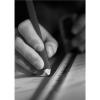
Perspectives: Powers of 10
Source Institutions
In this activity, learners complete a series of drawing activities to explore scale and powers of 10. Learners first trace each other on 1-meter-square pieces of paper.
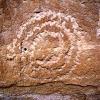
Make Your Own Petroglyph
Source Institutions
In ancient Chaco Canyon, the people used a "sun dagger" petroglyph to mark the passing of seasons.
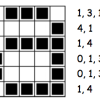
Colour by Numbers: Image Representation
Source Institutions
This activity shows learners how computers use numbers to represent pictures. A grid is used to represent the pixels (short for picture elements) of a computer screen.

Tiny Pants Photo Challenge
Source Institutions
In this activity, learners use a simple trick of perspective to dress friends in tiny cutout clothing. Learners make tiny pants out of card stock and tape them to the end of a stick.
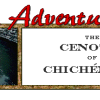
Solving Dissolving
Source Institutions
The Sacred Cenote at Chichén Itzá is a sink hole, or well, containing groundwater. In this activity, learners create their own cenote using chalk, limestone, acids, and rain water.
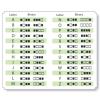
Binary Code Bracelets
Source Institutions
In this activity, learners make their own binary code bracelets by translating their initials into 0s and 1s represented by beads of 2 different colors.
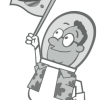
A Flag for Your Planet
Source Institutions
In this activity, learners design a flag for a chosen or assigned planet. The instructions include information about flags on Earth, and a list of flag references.
